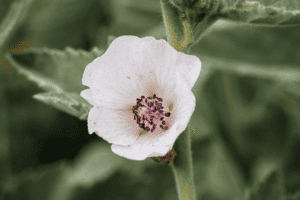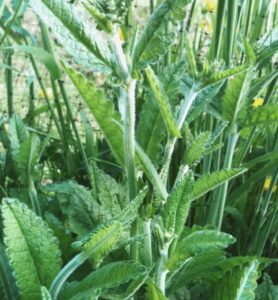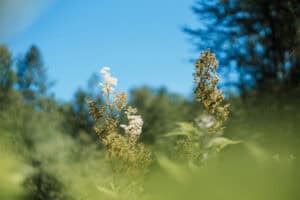Table of Contents
So what’s the deal with alcohol? What’s the best type of alcohol to use? Is there a difference between organic and inorganic alcohol? Is there a benefit to using high-proof alcohol or low-proof alcohol? How can we figure out the best type of alcohol to use?
In modern herbalism, we tend to think of alcohol as great for dissolving herbal constituents and preserving things well. They last indefinitely if the percentage is higher than 30 percent. But what about some of the traditional perspectives on alcohol? Specifically, why do we refer to distilled alcohol as “spirits”? That’s something that I was unaware of until I came across the alchemical and spagyric tradition.
Everclear and 95% Alcohol
Most herbalists use Everclear, which is 95% alcohol, primarily because it is such a high proof. From there, it can be diluted down to get to the correct percentage range and ratio of alcohol to water to suit the specific biochemical profile of the plant being worked with. One of the main reasons people use 95 percent alcohol is that it gives you the most versatility. If you’re buying a 40 percent vodka, you can’t get higher than 40 percent unless you’re adding a stronger-proof alcohol to the vodka, which wouldn’t make sense—you would just use the higher proof alcohol to make your tincture anyway. (The percentage of alcohol is always half of the proof. For example, 80 proof is 40% alcohol.)
Many medicinal plants, especially dried medicinal plants, respond well to a mid-range proof alcohol. Forty or 50 percent alcohol generally is going to give you a decent extraction of most dried medicinal plants. Of course, there are exceptions to that. Some you want actually less than 40%. Some you definitely want higher than 40%.
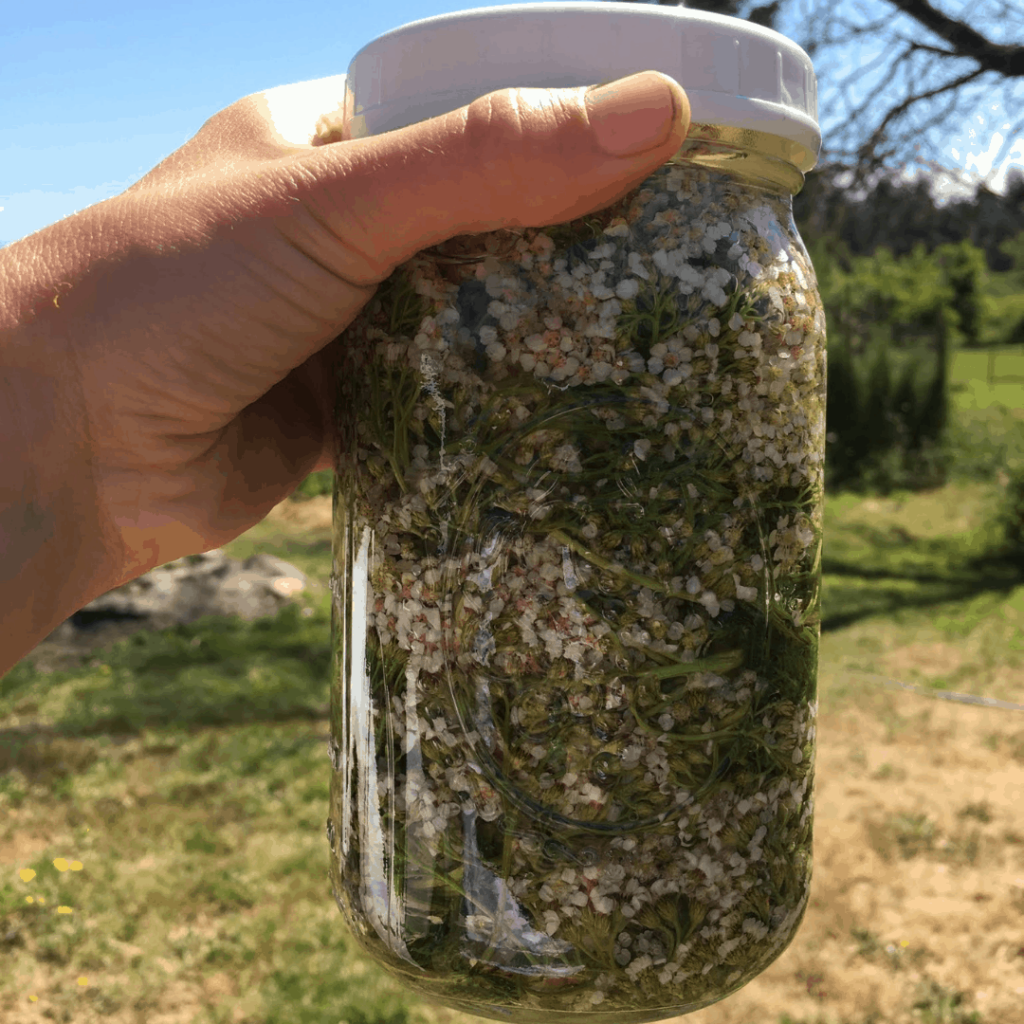
In that latter example, the main compounds that do not extract well in 40 percent alcohol are plants that are rich in resins, rich in volatile or essential oils, and fresh plants. With fresh plants, you’ve got to use something higher than 40 percent, because all the water content in the plant is going to dilute your alcohol. Depending on the herb, it could dilute it to a point where it’s potentially not even preserving the tincture all the way. So fresh plants, volatile oils and resins are the constituents that you really want a higher percentage of alcohol for. That includes a lot of your aromatic mints, Thyme, Oregano, Rosemary, Tulsi, Peppermint, and also expectorants—the stimulant expectorants in the lungs—things like Lamiaceae, Osha, Balsam poplar, Grindelia, or a lot of evergreen plants like Cedars and Pines—all of those plants prefer a much higher percentage alcohol to properly extract those volatile constituents. So in that way, this is why Everclear is really preferable.
Organic Alcohol
On that note, though, most Everclear is not organic. That’s an issue for a lot of folks. I obviously prefer organic anything and everything when it’s possible. It’s difficult to find organic alcohol, but there is a company out of Ashland, Oregon, called the Organic Alcohol Company which is organicalcohol.com. You can order spirits from them and get them shipped to you. In the United States, depending on what state you live in, you might have to get a permit in order to obtain a 95% alcohol. I live in Washington state, and we do require permits. It’s a $10 permit for the year through the state, and it’s simple to get. You just say you’re using it to make tinctures, and they issue it.
I think organic 95% alcohol from the Organic Alcohol Company is the best alcohol on the market. The next best thing would be to distill your own alcohol. Obviously that’s a lot of work, but it’s a great way to go about it. For any of you who are into the Alchemical tradition and the Spagyric tradition, a big part of the Spagyric process is distilling your own alcohol. That is preferable when preparing Alchemical and Spagyric medicines because you can have spirits that are distilled in accordance with the particular planetary aspect that you’re working with.
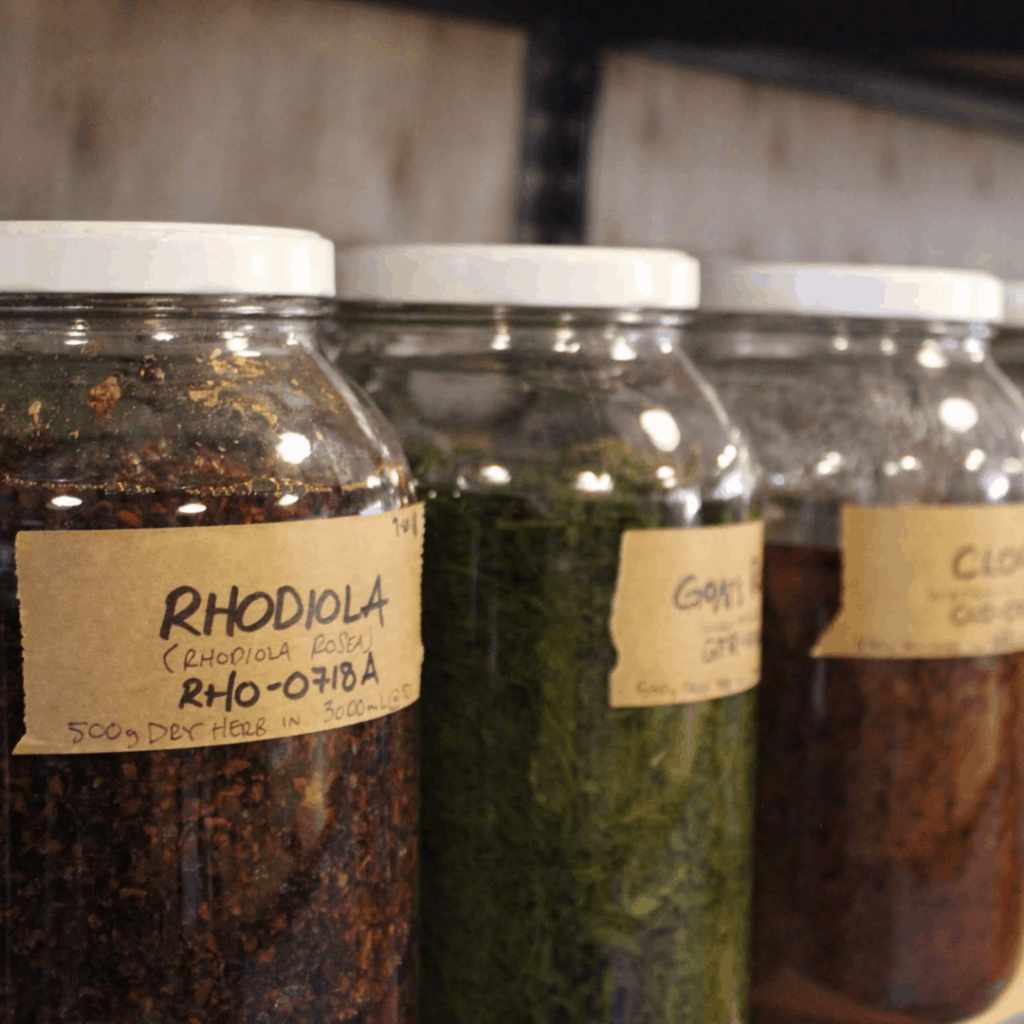
Let’s say you’re working with rosemary and you want to make a rosemary tincture. If you’re distilling your own alcohol, you can have a sun-distilled spirit where that spirit was fermented and all the distillations happened in accordance with the planetary timing of the sun, and so that spirit is attuned to the resonance of the sun and with Mercury and Mars and Venus and Jupiter and Saturn, and so on. One of the benefits of distilling your own alcohol, from more of an alchemical or spagyric perspective, is that that alcohol is much more attuned to the planetary power that you are harvesting in alchemical and spagyric works.
Alcohol as “Spirit”
The energy and distillation does make a difference in our medicine. Distilling your own alcohol is preferable because you’re able to refine the subtle energetics of that alcohol. It’s a spirit. It’s interesting that we use the word “spirits” to refer to distilled alcohol. It confused me when I was younger. Calling alcohol “spirits” didn’t make any sense to me. I had certain ideas of what spiritual meant. I’d been to a bar before and a lot of people drank spirits, but it didn’t seem that spiritual to me. But that was before I was familiar with the Alchemical tradition.
According to alchemy, alcohol is the universal spirit of the plant kingdom. Spirit or Mercury in alchemy is the vital force. There’s one spirit that moves through all things. Individual beings have their own individual soul, but there’s that one animating spirit, that one animating life force. In the plant kingdom that spirit is in the alcohol. If you take any plant and you submerse it in water—you drown it in a bucket of water, basically—it will always ferment to produce a certain amount of ethyl alcohol. And so the alchemists saw that all of these plants produce this volatile substance, this alcohol that’s lighter than water. You distill it, the alcohol comes over first, so it’s lighter and it’s clear and it’s vaporous and it’s sharp and penetrating and pungent and it affects your consciousness. They saw that as the spirit of the plant kingdom. So that’s where the term “spirit” comes from.
Because it’s a spirit, it’s subtle. In a way, it’s immaterial, it’s impressionable. This is why in alchemy the process of distilling spirits is delicate and refined and is done with presence and awareness and intention—so that the distilled spirit is pure and clean, both on a physical level and on a more subtle energetic or spiritual level too.
Conclusion
So those are some notes on preferred alcohol to use in your tincture-making process. Again, 95% organic alcohol is your best. Distilling your own alcohol is next in line. But obviously if the only thing you can get is an over-the-counter 40 percent vodka, it’ll do. It may not be the best for some plants, but you will still draw out a portion of the medicinal compounds in the plant and have a relatively effective medicine.
Happy Medicine Making folks!


